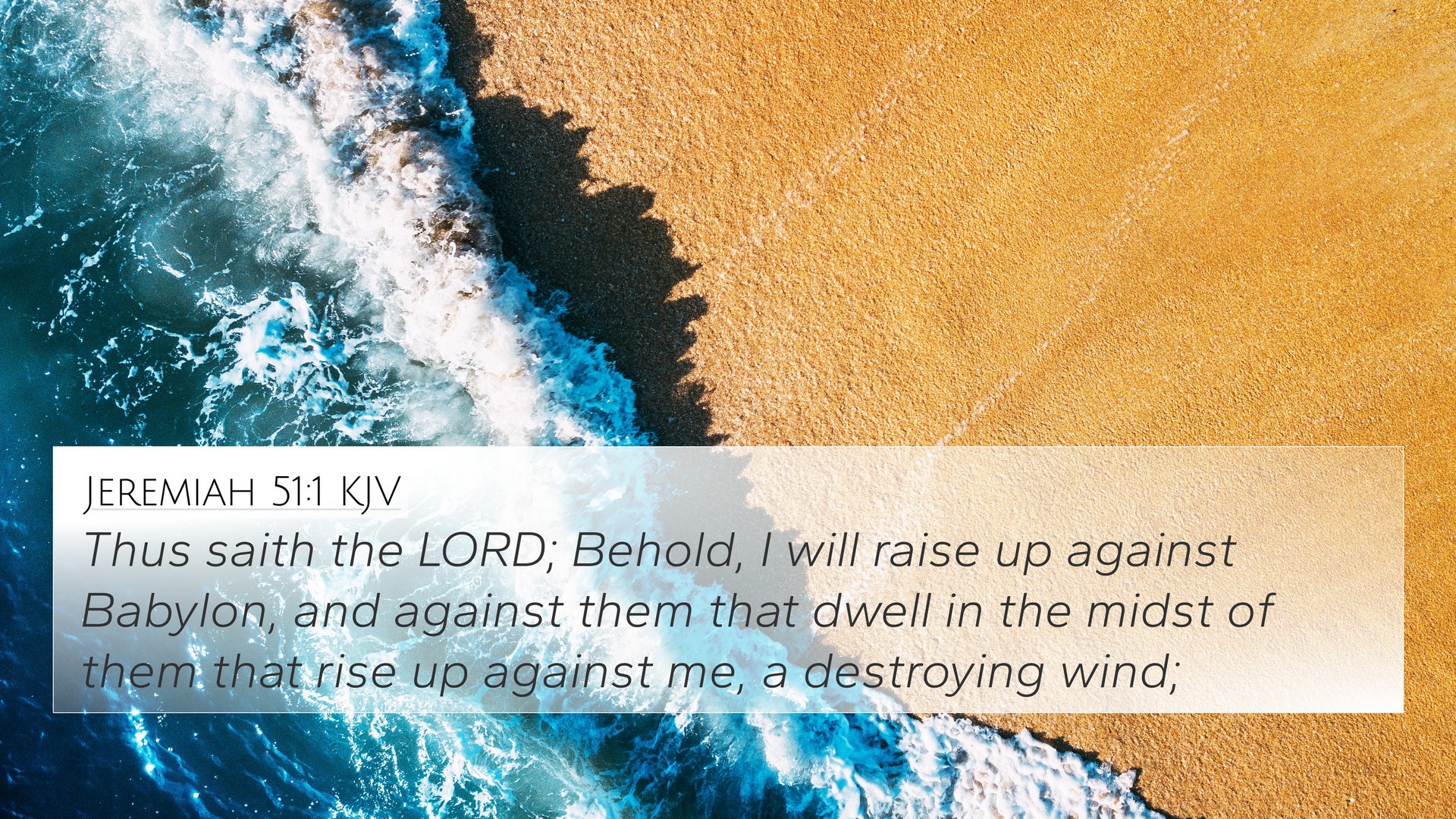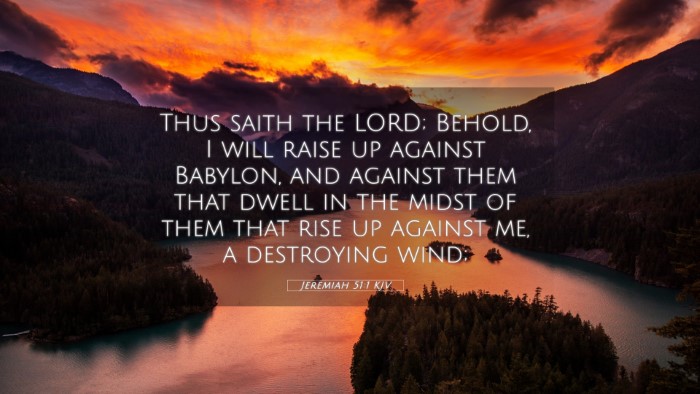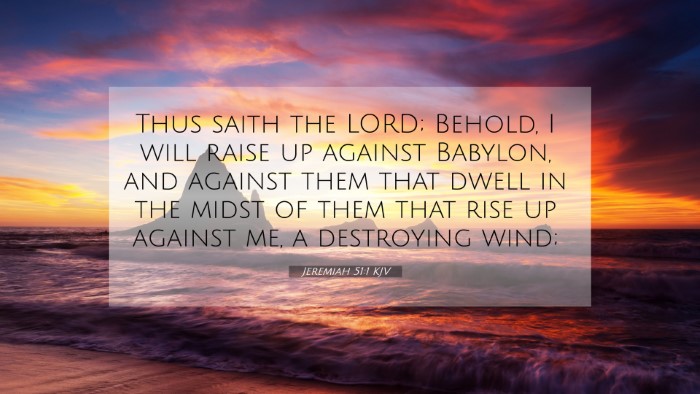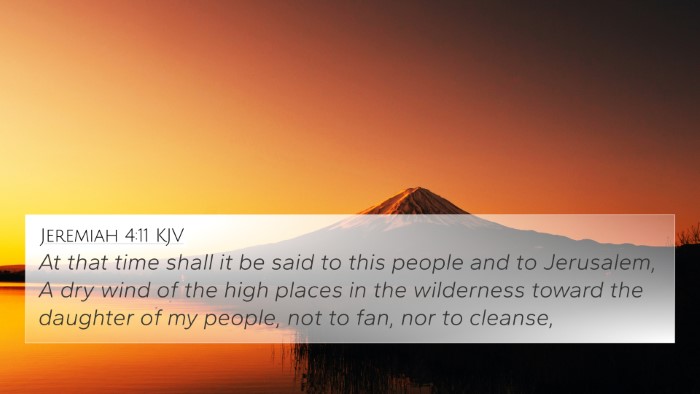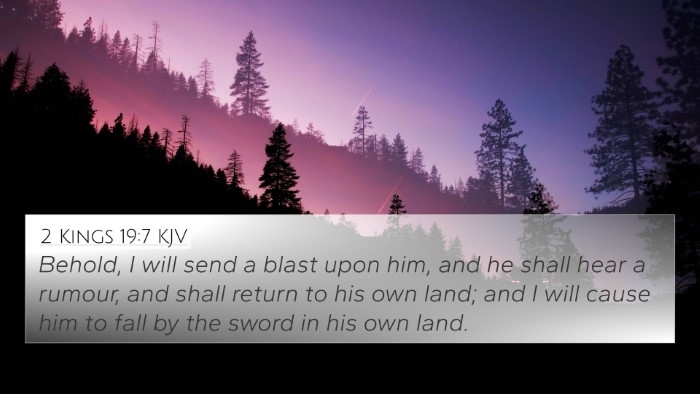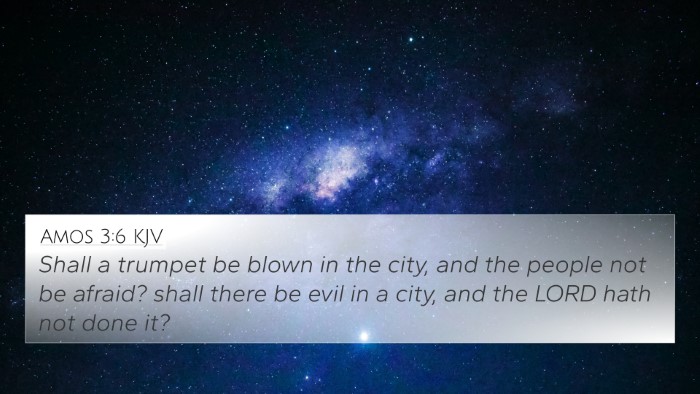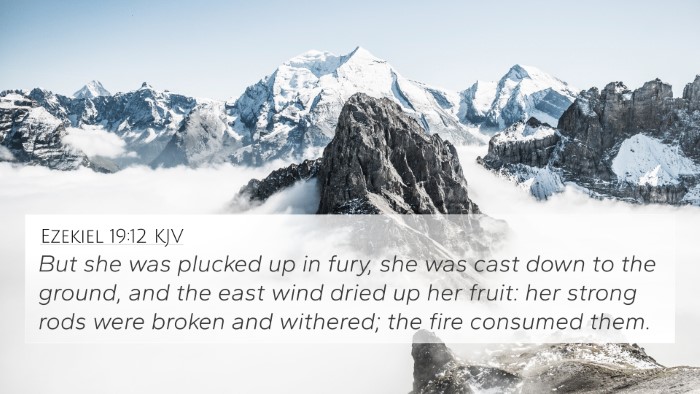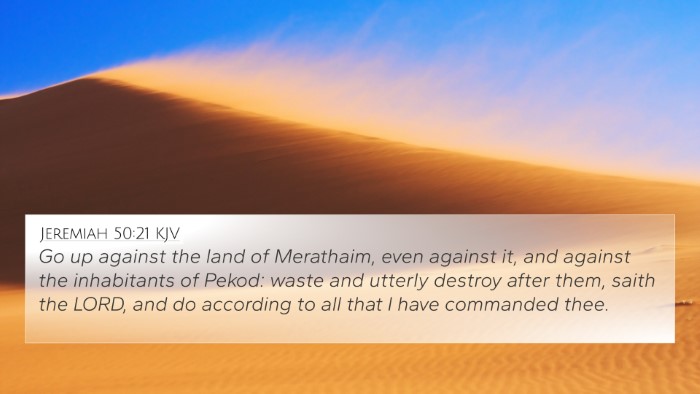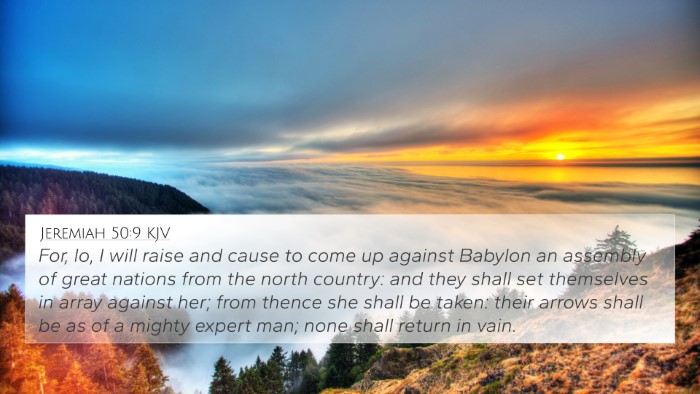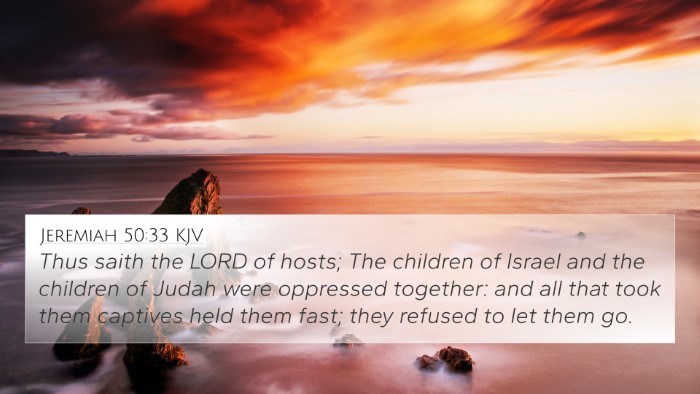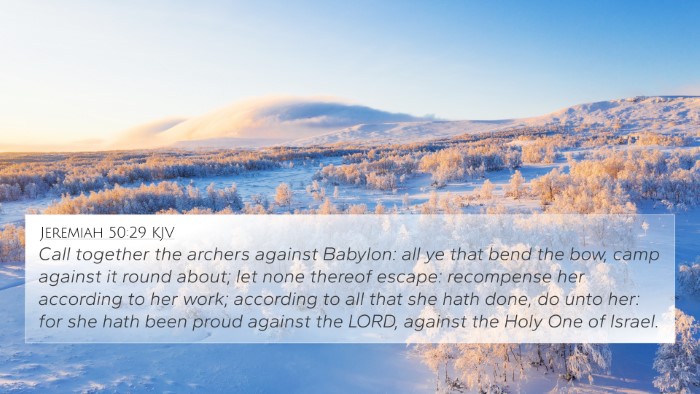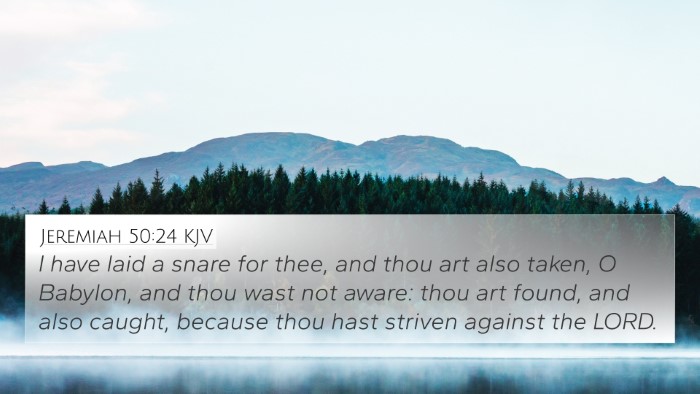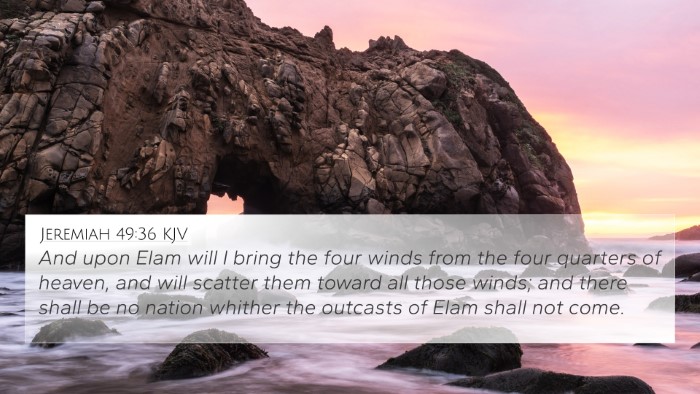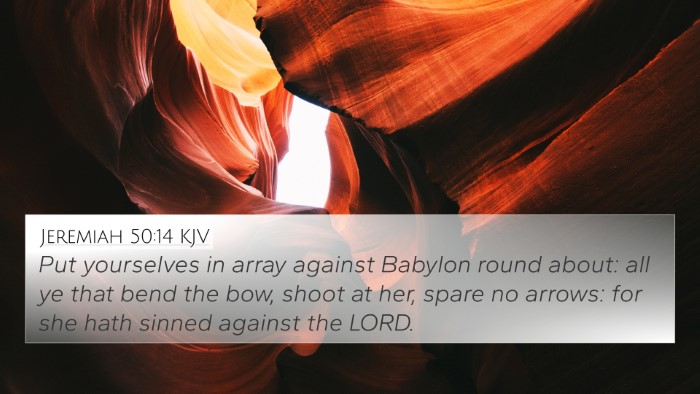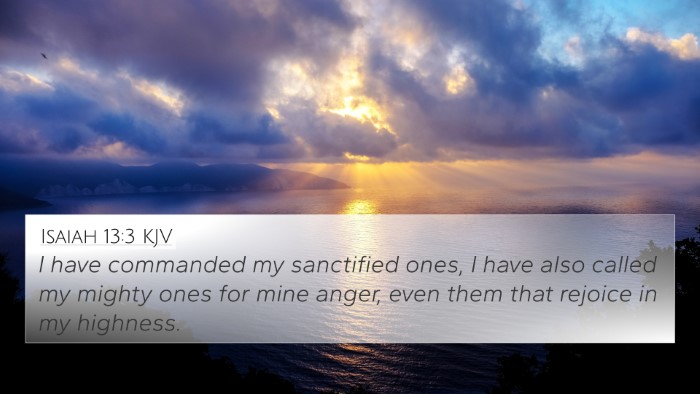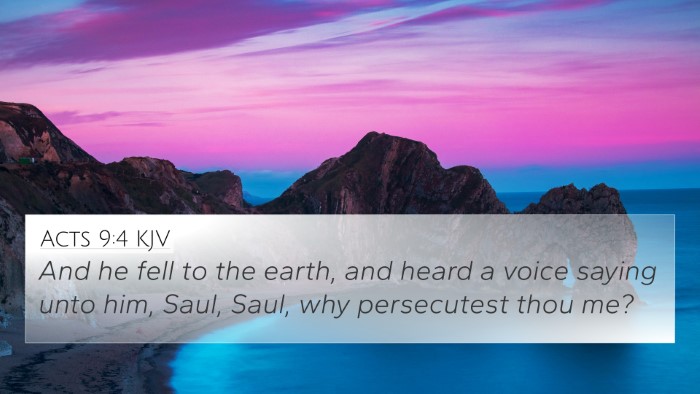Understanding Jeremiah 51:1
Verse Text: "Thus saith the Lord; Behold, I will raise up against Babylon, and against them that dwell in the midst of them that rise up against me, a destroying wind."
Overview of the Verse
This verse from the prophet Jeremiah is part of a larger prophecy regarding the impending judgment and destruction of Babylon. It uses vivid imagery to convey God's intention to bring devastation to a great power that has oppressed His people.
Commentary Insights
The insights provided by prominent biblical commentators—such as Matthew Henry, Albert Barnes, and Adam Clarke—offer rich interpretations of this verse:
- Matthew Henry: Henry emphasizes God's sovereignty over the nations, highlighting that He can raise up forces to fulfill His will. Babylon, as a symbol of pride and rebellion against God, faces inevitable judgment.
- Albert Barnes: Barnes discusses the figurative language of “a destroying wind,” interpreting it as God’s wrath manifesting through various means, possibly military forces or natural disasters, illustrating the completeness of Babylon’s downfall.
- Adam Clarke: Clarke notes the historical context, examining how the fall of Babylon aligned with God’s promises. He points out the irony in Babylon's fall, being a superpower that thought itself invincible but was ultimately defeated due to its hubris.
Thematic Connections
This verse has several thematic connections with other scriptures, which highlight God’s judgment, the fate of nations, and the restoration of Israel:
- Isaiah 13:19-22: This passage also prophesies the fall of Babylon, emphasizing its desolation.
- Revelation 18:2: Babylon is mentioned as fallen, echoing Jeremiah's prophecy in the New Testament context.
- Jeremiah 50:9: A similar prophecy concerning the destruction of Babylon is presented, reinforcing the message of divine judgment.
- Ezekiel 26:7-14: The prophecy against Tyre includes themes of judgment and destruction akin to Jeremiah 51:1.
- Habakkuk 2:6-8: This includes warnings against pride and the consequences of rebellion against God, which resonate with Babylon's fate.
- Psalm 137:8-9: This psalm expresses the longing of the Israelites for Zion and devastation upon Babylon.
- 2 Corinthians 6:17: This calls for separation from unrighteousness, which parallels God’s call for His people to be distinct from the wickedness of Babylon.
Cross-Referencing Biblical Texts
To deepen the understanding of Jeremiah 51:1, it is beneficial to utilize tools for Bible cross-referencing. Cross-references help identify connections between scriptures which expand upon the themes present in this verse:
- Tools for Bible Cross-Referencing: Utilizing a bible concordance can help locate verses with similar themes.
- Bible Cross-Reference Guide: Look for notes that link Jeremiah 51 with other prophetic books.
- Inter-Biblical Dialogue: Comparing Old and New Testament views on judgment allows for richer understanding.
- Cross-Referencing Bible Study Methods: Techniques such as thematic studies or verse-by-verse comparisons can illuminate additional insights.
Conclusion
Jeremiah 51:1 stands as a powerful reminder of God's control over the course of nations and His judgment against those who rise against Him. By exploring various commentaries and making thematic connections, readers can grasp a fuller picture of God's message through Jeremiah's prophecy, which resonates through both the Old and New Testaments. Engaging in comparative Bible verse analysis and utilizing bible reference resources enriches the study experience.
Further Study Recommendations
To delve deeper into the study of Jeremiah 51:1, consider the following:
- How to Find Cross-References in the Bible: Focus on matching themes or keywords.
- Identify Connections Between Old and New Testament: Particularly with themes of judgment and redemption.
- Comparative Study of Pauline Epistles: Study how Paul addresses the fallen nature of societies in his letters.
